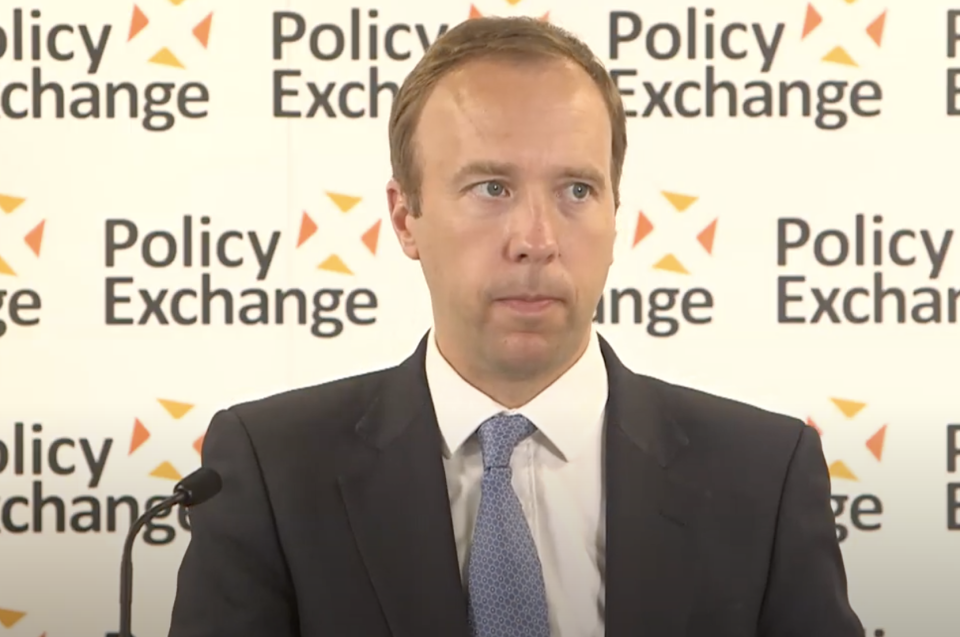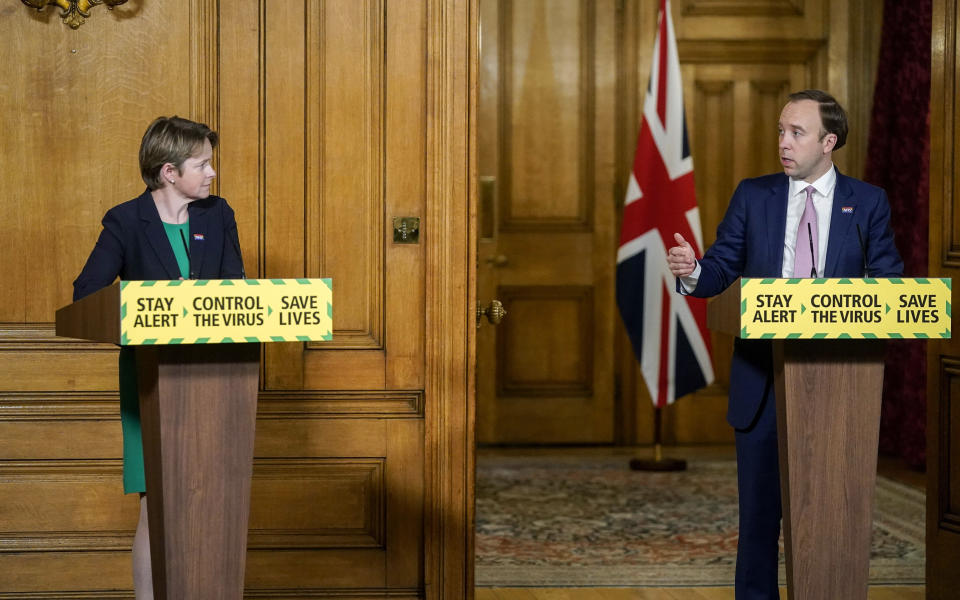Why Matt Hancock axed Public Health England and what it means
Health secretary Matt Hancock has announced the government will scrap Public Health England (PHE) and form the National Institute for Health Protection (NIHP) in its place.
Hancock said the shake-up is needed to “strengthen public health” amid the coronavirus pandemic.
But what do the changes actually mean? Here, Yahoo News UK explains all...
What was PHE?
PHE was a government agency formed in 2013.
Its wide range of responsibilities included protecting the nation from public health hazards; preparing for and responding to public health emergencies; supporting local organisations carry out screening and immunisation programmes; reducing health inequalities; and encouraging people to lead healthier lifestyles.
Why was it scrapped?
Some argued its scope was too wide.
However, with the government under constant scrutiny over its handling of the COVID-19 pandemic, ministers like Hancock have been accused of making PHE the scapegoat for Downing Street’s perceived failings during the outbreak.

Criticising PHE on Tuesday, Hancock said: “While we have some of the best public health science in the world… we did not go into this crisis with the capacity for a response to a once-in-a-century scale event.”
Responding to the announcement, shadow health secretary Jon Ashworth said scrapping PHE is “a desperate politicised attempt to shift blame”.
The UK has the fifth-highest coronavirus death toll in the world, at 41,369 as of Monday.
What will replace PHE?
The National Institute for Health Protection (NIHP).
This, Hancock said, will have “a single and relentless mission: protecting people from external threats to this country’s health”.
What does that mean?
The health secretary said the NIHP will be “dedicated to the investigation and prevention” of external threats such as pandemics, infectious diseases and biological weapons.
Hancock spoke of a national body operating at a local level by working with councils’ directors of public health, as well as the devolved administrations of Scotland, Wales and Northern Ireland. Previously, PHE had four regions: north of England; south of England; Midlands; and east of England and London.
The NIHP’s “immediate task”, Hancock said, will be to deal with the nation’s COVID-19 response, including boosting testing capacity and improving the much-maligned NHS Test and Trace system (more on that below).
In the longer term, Hancock said the NIHP is needed as “disease control infrastructure that gives us the permanent, standing capacity to respond as a nation and the ability to scale up at pace”.
PHE scrapped its testing and contact tracing programmes in March, at the beginning of the pandemic, due to a lack of capacity.
Though the government eventually introduced its own testing and contact tracing systems, this was after infections had peaked.
The UK compared unfavourably to countries such as Germany and South Korea, which already had large capacity to successfully monitor and manage their outbreaks from the very beginning.
Who is leading the NIHP?
It will be Baroness Dido Harding, a Conservative peer who was appointed to lead the NHS Test and Trace scheme in May.
Since then, the government has faced serious questions about the programme’s effectiveness. According to the latest figures, 48,625 people (18.5%) who had been identified as close contacts to people who tested positive for COVID-19 were not reached and told to self-isolate.

In 2015, Baroness Harding was the chief executive of TalkTalk when the telecoms giant suffered a massive cyber attack as hackers accessed 157,000 customers’ details, including bank account numbers. The breach ultimately cost the company an estimated £77m.
Before that, she held senior roles at Sainsbury’s and Tesco.
A jockey and racehorse owner, she has also served on the board of Cheltenham Racecourse.
Baroness Harding will lead the NIHP on an interim basis while the government does a “global search” for a permanent leader.
Watch: What is a recession?
Coronavirus: what happened today
Click here to sign up to the latest news and information with our daily Catch-up newsletter

 Yahoo Sport
Yahoo Sport 






































